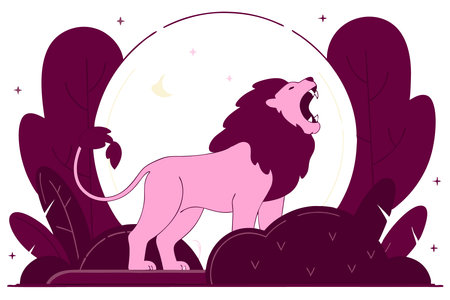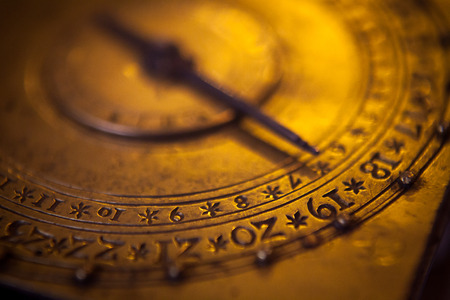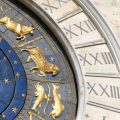Introduction: The British Love Affair with Astrology
There is something quietly enchanting about the enduring bond between the British public and the world of astrology. From the bustling streets of London to the tranquil corners of the countryside, star signs and horoscopes have woven their way into everyday conversation and media culture. This fascination is not merely a fleeting trend; it speaks to deeper threads within British society—curiosity, hopefulness, and a gentle sense of wonder about what lies ahead. Over the decades, astrology has moved from whispered parlour predictions to a beloved feature in tabloids, glossy magazines, and online columns, setting the stage for its mainstream acceptance. The stars have become confidants for many, offering comfort in times of uncertainty and a playful nudge towards self-reflection. In this opening chapter, we begin to unravel why astrology has found such fertile ground in Britain’s cultural landscape, exploring how it continues to resonate with those seeking meaning beyond the ordinary.
2. From Horoscopes to Headlines: Astrology in Popular Media
Astrology’s journey through British popular culture is inseparable from the evolution of its media landscape. The humble newspaper horoscope column, once a small curiosity nestled between world news and the crossword, has grown into a cultural phenomenon that now headlines glossy magazines and tabloid newspapers alike. This transformation reflects both changing public attitudes and the shifting priorities of Britain’s ever-curious press.
In the early twentieth century, astrology was largely considered a parlour amusement or an esoteric pursuit for the few. However, as newspapers sought to attract a broader readership, editors realised that horoscopes—short, entertaining, and easy to digest—were the perfect addition to their pages. It wasn’t long before daily and weekly star sign columns became a regular fixture, offering comfort, hope, and the occasional nudge of advice to millions across the UK.
Media Milestones in Astrology’s Rise
| Era | Media Format | Astrological Presence |
|---|---|---|
| 1930s–1950s | Print Newspapers | Birth of daily horoscope columns |
| 1960s–1980s | Glossy Magazines & Radio | Expanded star sign columns and celebrity astrologers |
| 1990s–Present | Tabloids & Digital Media | Sensationalised headlines, interactive online readings, apps |
This widespread popularity has not only normalised astrological language—think Mercury retrograde or Saturn return—but also embedded star sign banter into everyday British conversation. Water cooler chats about “blame it on my Leo rising” or “classic Virgo behaviour” are as common as discussions about last night’s telly. The media’s playful presentation of astrology has allowed it to slip seamlessly into national consciousness, blurring the lines between entertainment and self-reflection.
The tabloids, in particular, have played a unique role in shaping astrology’s reputation. With their flair for sensationalism, they transformed what was once a gentle nudge from the stars into bold declarations—“Sagittarius: Love is on the cards!” or “Pisces beware: financial surprises ahead!” This accessibility brought astrology to new audiences while reinforcing its position as both a comforting guide and a topic for light-hearted debate at British breakfast tables.

3. Astrology Across the UK: Regional Flavours and Traditions
Astrology in Britain is not a monolithic affair; rather, it is a constellation of regional expressions, each reflecting the unique character, history, and humour of its locale. From bustling London to the windswept highlands of Scotland, astrological traditions have woven themselves into the fabric of daily life—sometimes quietly in local papers, sometimes flamboyantly in city tabloids. Unpacking these regional nuances offers a gentle window into how communities across the UK make sense of the stars above.
The Northern Lights: Scotland’s Mystical Legacy
In Scotland, astrology often finds itself entwined with ancient Celtic folklore and a reverence for nature’s rhythms. Local publications may feature horoscopes that speak to the spiritual side of life, echoing themes of ancestry and wild landscapes. For many Scots, star signs are less about personal fortune-telling and more about connecting with tradition—a subtle nod to both their mystical heritage and their pragmatic outlook on life.
The Welsh Connection: Poetry and the Planets
Wales, with its lyrical language and deep-rooted mythologies, brings a poetic sensibility to astrological columns. Welsh astrologers often draw from local legends, infusing horoscopes with tales of dragons and druids alongside planetary movements. In community newsletters and regional dailies alike, astrology becomes a storytelling device—reflecting both the resilience and romanticism that define Welsh culture.
The English Patchwork: Urban Glamour and Rural Roots
England itself offers a patchwork of approaches. In metropolitan hubs like London or Manchester, astrology has taken on a cosmopolitan flair—horoscopes appear alongside celebrity gossip in glossy tabloids, blending pop culture with planetary wisdom. Yet in rural shires or seaside towns, you’ll find quieter traditions: village magazines sharing monthly star sign advice rooted in gardening cycles or local superstitions. This diversity speaks to England’s ability to balance trendiness with timelessness.
Northern Ireland: Community Spirit Under the Stars
Northern Ireland’s close-knit communities often use astrology as a source of conversation and connection. Whether it’s an aunt reading out star sign predictions over tea or local radio hosts chuckling through daily horoscopes, there’s a warmth and wit to how the Northern Irish engage with astrology. It isn’t just guidance—it’s a shared ritual that weaves neighbours together.
A Tapestry Woven by Place
Across the UK, then, astrology reflects more than celestial patterns—it mirrors regional identities and values. The way Britons engage with horoscopes, columns, and tabloid predictions is shaped by centuries-old traditions and contemporary attitudes alike. By appreciating these subtle variations, we see not just how the stars influence us, but how we shape our own stories beneath them.
4. The Columnists: Personalities Who Made Astrology Mainstream
Astrology in Britain would not have become a household curiosity—nor such a beloved daily ritual—without the charismatic personalities who penned its starry messages. In the bustling world of British print media, several astrologers and columnists have left indelible marks on the nation’s relationship with horoscopes. Their voices were more than mere predictions; they became trusted companions, offering comfort and gentle insight during uncertain times.
The Pioneers of Popular Astrology Columns
Throughout the 20th century, certain names became synonymous with astrology in Britain. Perhaps most iconic was R.H. Naylor, whose fateful prediction about an air disaster for The Sunday Express in 1930 is often cited as the spark that ignited the horoscope column craze. Soon after, daily and weekly horoscopes graced nearly every major newspaper, inviting readers to glance skyward over their morning tea.
Influential British Astrologers and Their Legacy
| Name | Publication(s) | Notable Contribution |
|---|---|---|
| R.H. Naylor | The Sunday Express | Pioneered regular newspaper horoscopes; made astrology accessible to all |
| Penny Thornton | Daily Mail, Hello! | Brought psychological insight to sun sign columns; famously advised Princess Diana |
| Jonathan Cainer | The Daily Mail, The Mirror, Today | Known for empathetic and poetic style; reached millions with his thoughtful prose |
The Role of Tabloids: Making Astrology Approachable
Britain’s tabloids played a pivotal role in cementing astrology’s place in everyday life. These publications understood that horoscopes were more than entertainment—they provided a sense of hope, belonging, and reassurance. Columnists like Russell Grant, with his flamboyant charm and television appearances, further wove astrology into the fabric of popular culture.
A Trusted Voice in Uncertain Times
The unique tone of British astrology columns—part friendly advice, part gentle nudge towards self-reflection—helped shape how generations approached their daily lives. Whether through witty banter or quiet encouragement, these writers offered something deeply needed: a moment of pause, a glimmer of magic amid the mundane.
5. Why Britons Turn to the Stars: Social and Cultural Influences
Delving into what draws the British public to astrology is a journey through both history and heart. In times of uncertainty, Britons have long sought solace in gentle rituals and quiet comforts — from a well-brewed cuppa to the familiar voice of a favourite radio presenter. Astrology, with its softly spoken promises and personal touch, slots seamlessly into this cultural landscape.
The Need for Certainty in an Uncertain World
The past decades have seen seismic shifts across British society: political upheaval, economic fluctuation, and rapid technological change. When the ground feels shaky beneath one’s feet, many find reassurance in astrological columns nestled among the pages of popular tabloids. These star-studded snippets offer not only entertainment but also a sense of order — a belief that, somewhere amidst the chaos, the universe has a plan.
A Gentle Guiding Hand
Unlike stern pronouncements or prescriptive advice, horoscopes in British media tend to offer gentle nudges rather than hard rules. There’s a certain warmth to the way astrology is presented: “Take time for yourself, dear Virgo,” or “An unexpected encounter may brighten your week, Pisces.” This tone aligns beautifully with the understated kindness woven through British culture — guidance that is inviting rather than imposing.
Community and Conversation
Astrology also serves as a social glue for Britons. Whether it’s sharing daily horoscopes over tea at work or playfully debating Mercury retrograde in the pub, star signs create easy opportunities for connection. In a society that values both individuality and camaraderie, astrology offers a language for self-expression while encouraging friendly banter among friends, family, and even strangers on the Tube.
Modern Identity and Self-Reflection
For many, reading their horoscope is more than mere escapism; it’s an invitation to pause and reflect. The rise of individualism in contemporary Britain means that personal growth and self-understanding are held in high esteem. Astrology columns provide space for introspection, allowing readers to gently explore their emotions and motivations within the safe structure of cosmic symbolism.
Cultural Continuity with a Modern Twist
Ultimately, the allure of astrology among Britons lies in its ability to blend tradition with modernity. It offers comfort without demanding belief; insight without intrusion. Whether read in print or scrolled through online, horoscopes remain a cherished companion — a reminder that even under grey skies, there is magic to be found in looking up.
6. Sceptics, Believers, and the Future of British Astrology
Astrology in Britain has always been a fascinating tapestry woven with threads of belief, doubt, and curiosity. On one side, there are the ardent sceptics—those who dismiss horoscopes as fanciful nonsense, relics best left to the pages of red-top tabloids or light-hearted magazine columns. Many in this camp view astrology as a charming but ultimately unscientific distraction from the pressing realities of modern life. Yet, their vocal critiques have done little to diminish astrology’s enduring appeal among the British public.
In contrast, believers—whether quiet followers or passionate devotees—continue to turn to star signs for insight and reassurance. For many, reading a daily horoscope in The Sun or glancing at an astrologer’s predictions in the Metro is less about foreseeing the future and more about finding gentle guidance for the day ahead. There’s comfort in these celestial narratives: a soothing reminder that our lives may be shaped by cosmic rhythms beyond our immediate control.
The interplay between scepticism and belief forms a unique cultural dialogue within British society. It’s common to overhear colleagues discuss Mercury retrograde over a cuppa, or friends jokingly blame a dodgy date on “Venus being in Leo.” Even those who profess not to believe often find themselves drawn into playful debates, sharing memes or checking compatibility charts for fun. This blend of irony and genuine interest is quintessentially British—a way of embracing tradition while keeping a healthy dose of humour and discernment.
Looking to the future, astrology’s place in British media and public life appears secure, if not evolving. Digital platforms and social media influencers have breathed new life into star sign culture, making it accessible to younger generations in fresh formats—from witty TikTok readings to tailored Instagram memes. Meanwhile, print columns remain steadfast fixtures in many households, bridging generational divides through shared rituals of reading and reflection.
Perhaps what truly sustains astrology’s popularity is its adaptability. Whether you’re a pragmatic Capricorn seeking structure or a dreamy Pisces longing for connection, there’s space within astrology’s gentle wisdom for everyone. As Britain continues to navigate uncertainty—socially, politically, and personally—the stars offer both solace and conversation: an invitation to ponder life’s mysteries together. So whether you read your horoscope religiously or roll your eyes at cosmic predictions, astrology remains a quietly persistent part of British culture—always ready with a story or a signpost for whoever chooses to look up.

